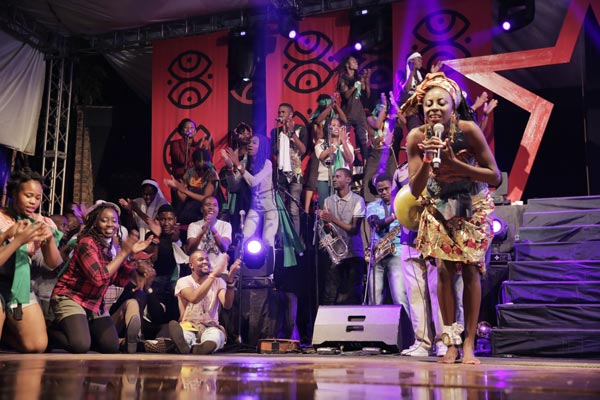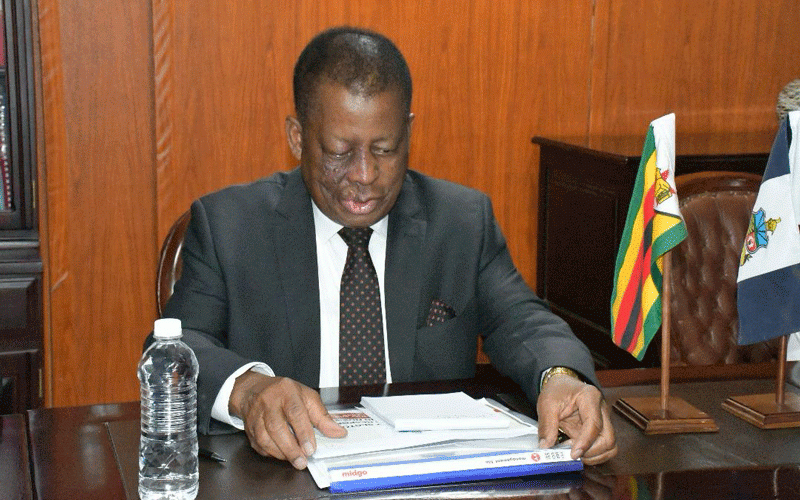

In the groove: with Fred Zindi
Each year this time, around the end of March, preparations for the Harare International Festival of the Arts (Hifa) would be in full blast. However, Hifa is not taking place this year. The organisation has issued a statement saying that it has cancelled this year’s edition of the gathering amid economic challenges the country is facing.
Hifa is an annual six-day arts and culture celebration taking place in the capital city of Zimbabwe, Harare. It began in 1999 and is the most prominent and prestigious showcase for Zimbabwean arts as well as a platform for performances and exhibitions by visiting international artistes and groups.
Hifa was first shelved in 2002 due to politics when European election observers, whose countries sponsored the festival were barred from entering the country. It was cancelled again in 2016 as Zimbabwe’s economy crumbled and left desperate locals unable to withdraw money from banks.
Despite many sponsors pulling out, festival organisers revived the event, which is normally held in Harare Gardens.
In a statement, Hifa executive director Maria Wilson said they had cancelled this year’s edition and would concentrate on various projects that foster the development of arts in the country.
“Zimbabwe is dealing with many important issues, both social and economic. In this context, the festival cannot responsibly commit to presenting a viable event of the same quality and impact that Hifa is known for this year,” Wilson said.
“The festival will use this time to work on other projects, particularly in schools, to broaden and deepen the organisation’s contribution to arts and culture development. Showcasing the artistic outcomes of our planned new school programmes will be one facet of the next festival, 28 April to 3 May 2020.”
- Chamisa under fire over US$120K donation
- Mavhunga puts DeMbare into Chibuku quarterfinals
- Pension funds bet on Cabora Bassa oilfields
- Councils defy govt fire tender directive
Keep Reading
She said, in addition to presenting the festival, Hifa works throughout the year on initiatives that build capacity within the local arts community, use arts and culture to explore social and community issues, and assist companies to realise their marketing and public relations potential through creative thinking.
The festival powerfully engages local, regional and international recognition for Zimbabwe’s cultural diversity and capacity to achieve the highest standards of artistic presentation.
Hifa is widely acknowledged as one of the best arts and culture initiatives on the continent, bringing together corporate investors, embassy and donor partners, local and visiting artistes, large and enthusiastic audiences, and the media.
Given the magical moments we have been treated to in the past from local, regional and international musicians, music lovers were spoiled for choice at Hifa. Performances included treats from groups and individual musicians such as our own Oliver Mtukudzi, Mokoomba, Salif Keita, Afro-Japanese Music Happening, Taurai Pekiwe and the Legal Lions, Luisa Sobral, Hope Masike, Winky D, The Zimbabwe College of Music Band, Prince Edward School Band, Jackson Wahengo, Buffalo Soldier, Kaakie from Ghana, Guspy Warrior, The Zanzibar Taarab Kidumbak Ensemble, i-Tribe, Buhle (Sharon Ndlovu) Sylent, Bashupi, Digitts, True Vibenation, Beatenberg and Freshly Ground (from South Africa), Djembe Monks, Michael Moore, Victor Kunonga, Ramin Khalatbari, Perfect Friction, Vee Mukarati, Tariro neGitare, Eve Kawadza and the Marondera Schools Orchestra, Makumbe High School Choir, Josh Meck, Silas Miami & Raven plus many more.
In 2014, HIifa’s closing show by South African group Freshlyground was cancelled only hours before it was scheduled to start when the band was refused entry into the country on arrival at the then Harare International Airport. The group was deported apparently for being unwelcome visitors to the country. It is generally believed that they were unwelcome because of their 2010 song, Chicken To Change (which was shown in a video mocking the then president, Robert Mugabe for hanging on to power). Hifa was forced to refund festival goers for the show.
The Hifa experience and excitement is to be missed this year.
Although the statement from Wilson states that the next festival would be held from April 28 to May 3 next year, given the economic meltdown in Zimbabwe this year coupled with the recent Cyclone Idai disaster, I am beginning to wonder whether Hifa will take place next year.
I spoke to the Hifa board chairman, former Harare mayor, Muchadeyi Masunda, who told me that his board was thinking of a new model for Hifa, “We need to go back to the drawing board. Hifa needs to move away from its present model. We need to look at alternative arts and cultural activities in this country. I remember speaking to the late Walter Muparutsa and Farai Mpfunya about this. Hifa brings about many benefits, but it should also look at vulnerable communities. Every year there was a pilgrimage of music lovers who visited the country during Hifa and there was an arrangement with corporate partners as well as foreign embassies to support Hifa. As a matter of fact, whenever Hifa made a shortfall, the Nordic countries such as Norway and Denmark would take care of that. Thus, Hifa never incurred a loss. That has changed now. That support is no longer there. I have spoken to Kirsty Coventry and Thokozile Chitepo asking them to speak to their colleagues such as the National Arts Council, Immigration, Zimra and others who see Hifa as their cash cow each year. Instead of President Emmerson Mnangagwa sending $500 000 to lobbyists in America, that money should come to the arts and support events such as Jikinya or Neshamwari festivals,” he said.
In the past, Hifa’s sponsors included Telecel, ZOL, Old Mutual, Central African Building Society (CABS) Hivos, Norwegian Embassy, Danish Embassy and other NGOs. Most of them have pulled out now.
Manuel Bagorro, who established Hifa in 1999 as its artistic director, once said, “How dull the world would be if we didn’t have some form of artistic life. How would we share the things that cannot be communicated in any other way and have fun at the same time? How would we rise above words to articulate the most poetic aspects of being human? The arts can express who we are as individuals and as a vital nation. This is our opportunity to articulate who we want to be, so speak up.”
Indeed, each year Hifa used its platform to articulate the socio-political issues faced by Zimbabweans and although some politicians were uncomfortable with the sentiments expressed there, the Hifa train continued to move into motion until it was crippled by economic woes.
Despite the difficulties, Hifa brought to Zimbabwe a lot of cultural and artistic events which opened up other avenues for locals and enabled many a musician to network and explore other cultures.
On another note, every single year since 2010, up until 2017, another music festival, Miombo Magic, was held at Christon Bank in Mazowe, straight after Hifa, but in 2018 and this year, the festival has failed to materialise.
A message from Gus Le Breton and Angus, the organisers of Miombo Magic Festival, to friends and supporters of the festival reads:
“With heavy hearts, we have to break the news that Miombo Magic will not be happening in 2019 in the format that we had all hoped for. The economic situation in Zimbabwe is simply not conducive for a festival of our scope and ambition. We’ve had multiple corporate sponsors withdraw, and when we polled our supporters, 59% responded that they could not afford the ticket prices. There’s no sense in organising a festival no one can afford to attend and we would only end up losing money if we did so.”
So we have lost out on two possible festivals this year.
Organisers of Miombo Magic Festival further acknowledge that we as Zimbabweans live in a beautiful country filled with extraordinarily talented musicians and surrounded by loving and joyful people, but have no capacity to conduct such a festival this year.
With what is happening in Zimbabwe today, will they ever be able to profitably bring the festival back to life? I wonder
Feedback: [email protected]











